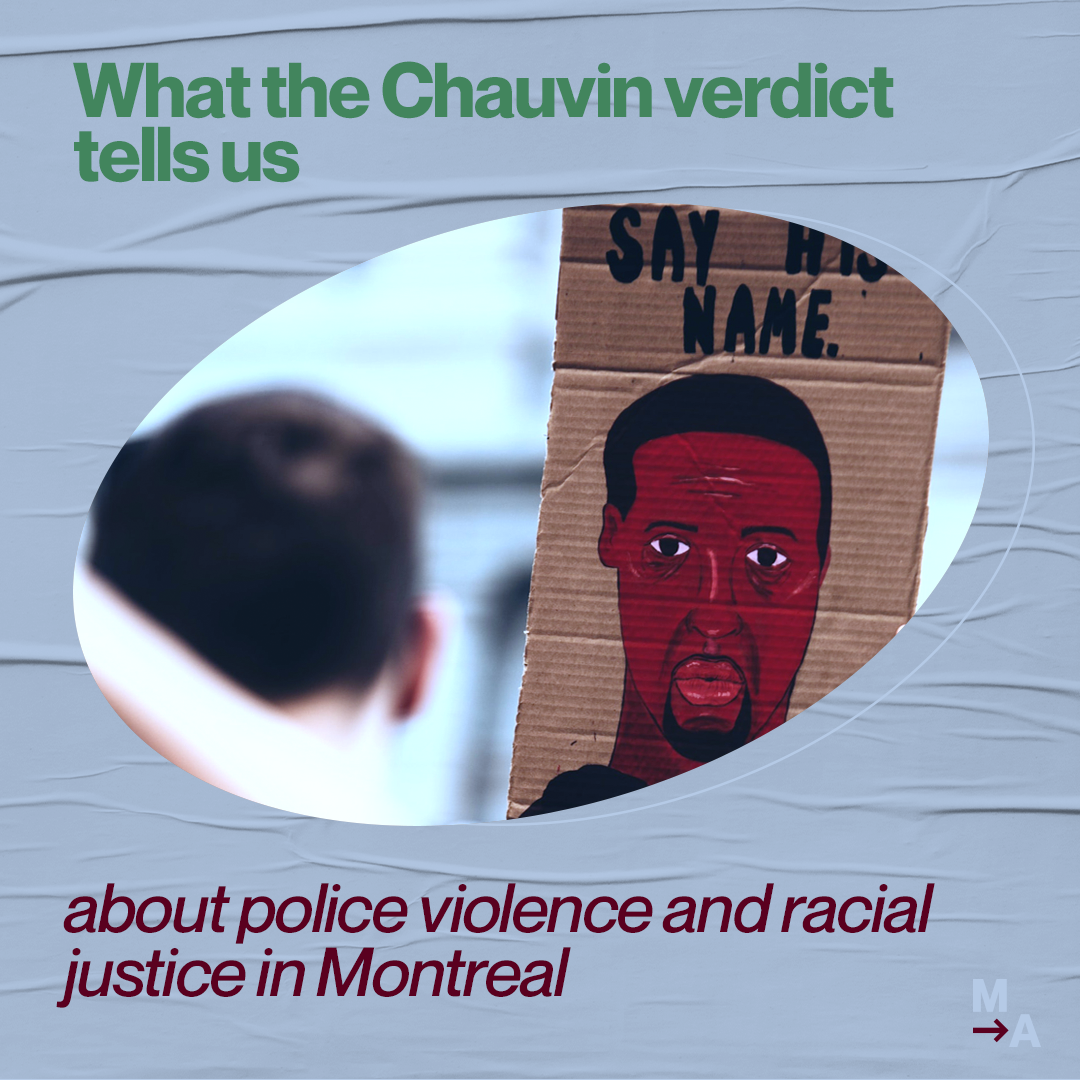Former police officer Derek Chauvin was found guilty of George Floyd's murder in Minneapolis, but this is just the beginning of tackling race-based police violence.
Derek Chauvin, the former Minneapolis police officer arrested for the infamous murder of George Floyd, has been found guilty on all three charges against him: second-degree unintentional murder, third-degree murder, and second-degree manslaughter. He will be sentenced on June 16, a year after worldwide protests demanding an end to police killings and violence against Black people. This is good news: this conviction represents what could be an incoming change in culture surrounding legal repercussions for police officers who act violently while on the job.
However, in Canada last year, 34 people were shot and killed by police, and of those whose race was identified, 48% were Indigenous and 19% were Black. Keep in mind that only 4.9% of the population of Canada is Indigenous and only 3.5% is Black.
The fight is far from over. Here, in Montreal, only 8% of police officers identify as visible minorities, while 33% of the population of the city is visibly racialised. A 2019 report states that the SPVM are four times more likely to stop Indigenous and Black Montrealers on the street than their white counterparts.
As such, Montreal in Action has been working to enact the 38 recommendations on systemic racism and discrimination that came out of the OCPM’s city-wide public consultation, which published its results last year. This public consultation was triggered by Montreal in Action's advocacy and outreach. Recommendations 17 through 25 are aimed specifically at addressing the systemic racism embedded in the SPVM’s structure. The public consultation found that racial and social profiling is a violation of the fundamental human rights of Montrealers and recommended essential changes to the training programs, board structure, complaint recording and accessibility, and data collection systems of the SPVM.
For example, the SPVM does not release data on violent interactions between police officers and civilians. This means that if an event (like this one, which recently went viral in Jeanne-Mance Park) escalates and involves the death or injury of a civilian, the public currently may not know the identity of the police officer(s) involved. Recommendation 18 would require the SPVM to release "data regarding police interceptions and render this data available to the public in order to facilitate research and regain the confidence of the public."
Montreal in Action will release an action plan and status report on the 38 recommendations this June. To follow along with our work, follow us on Twitter and Instagram for regular updates.

